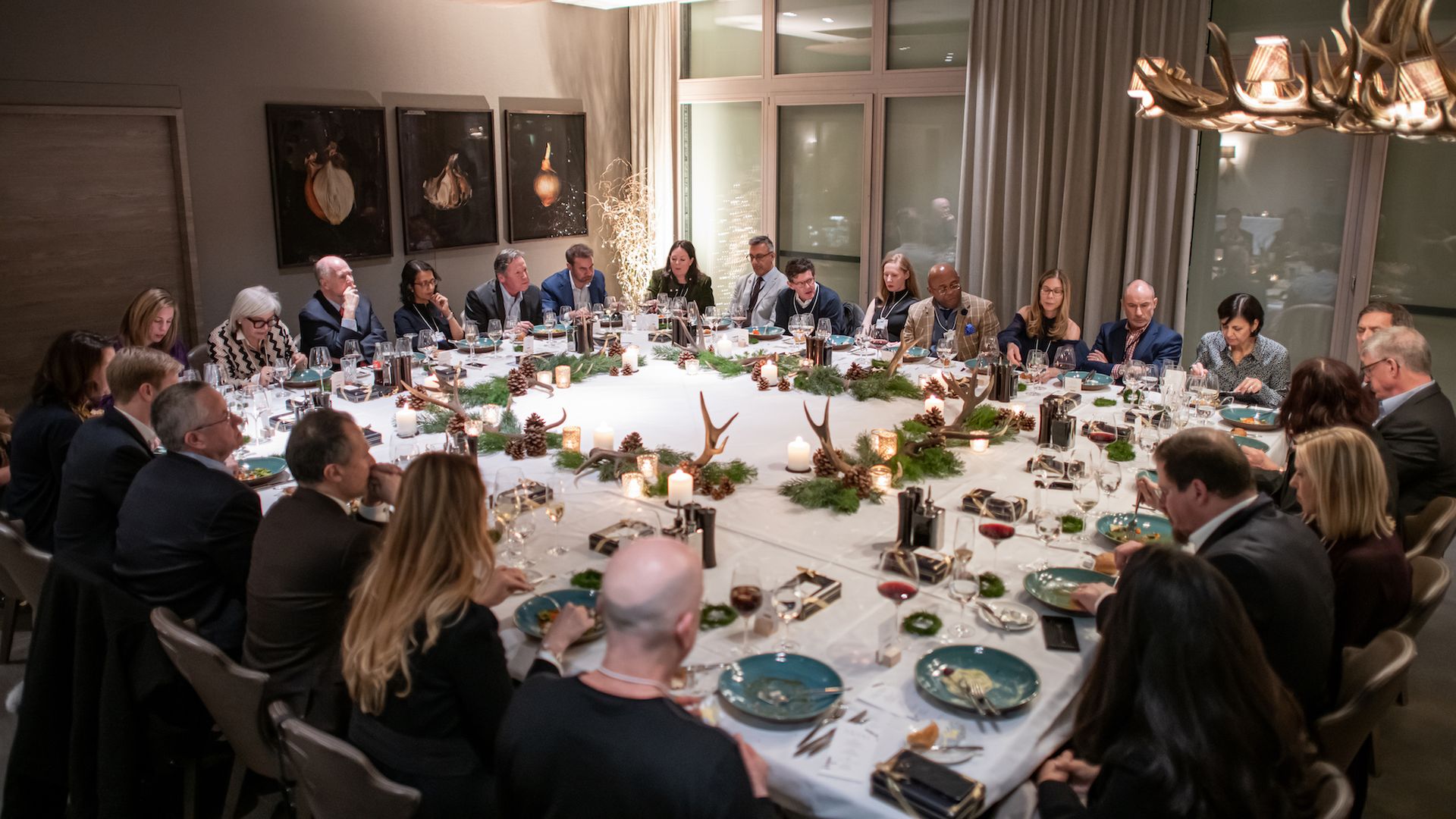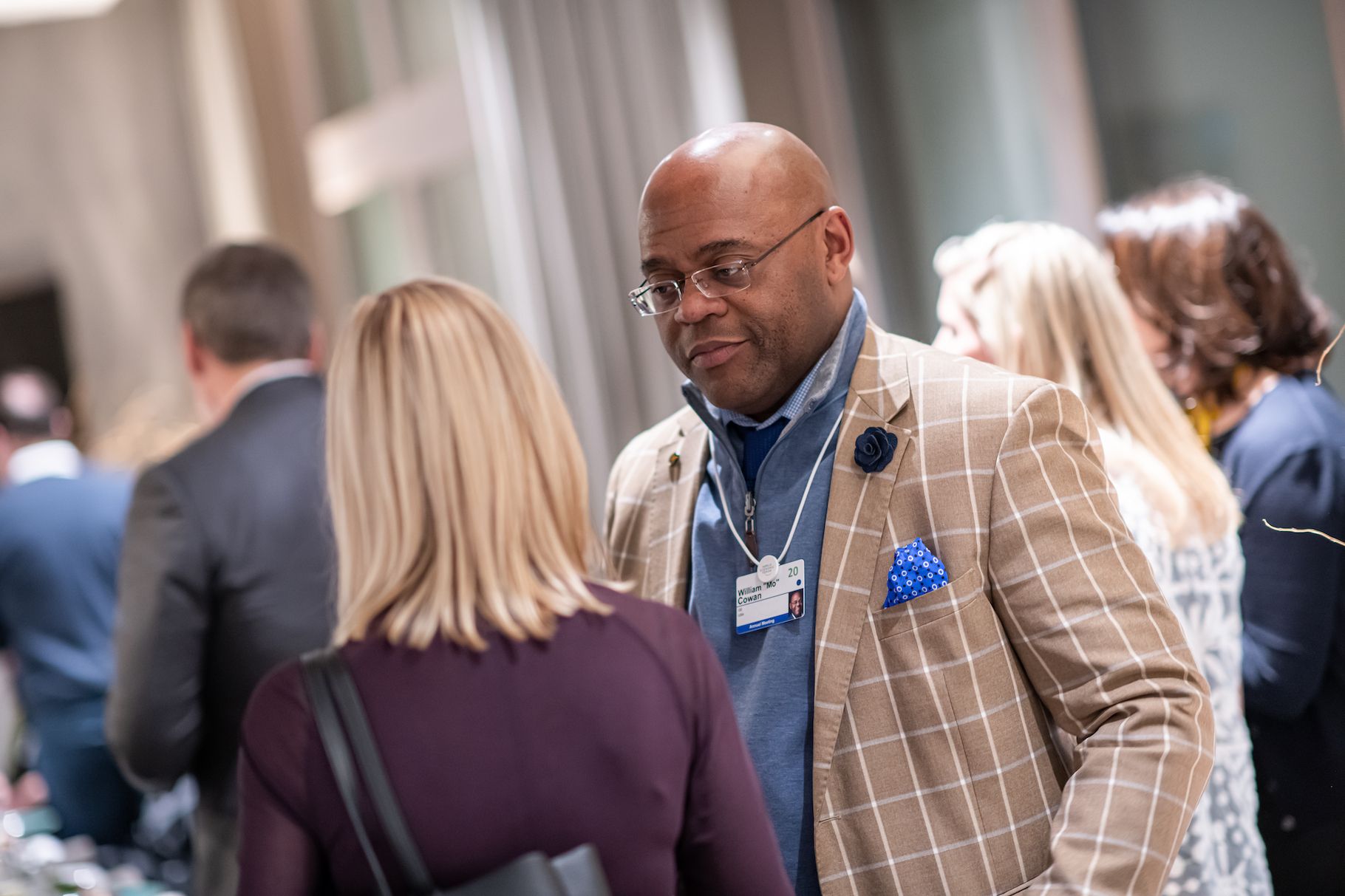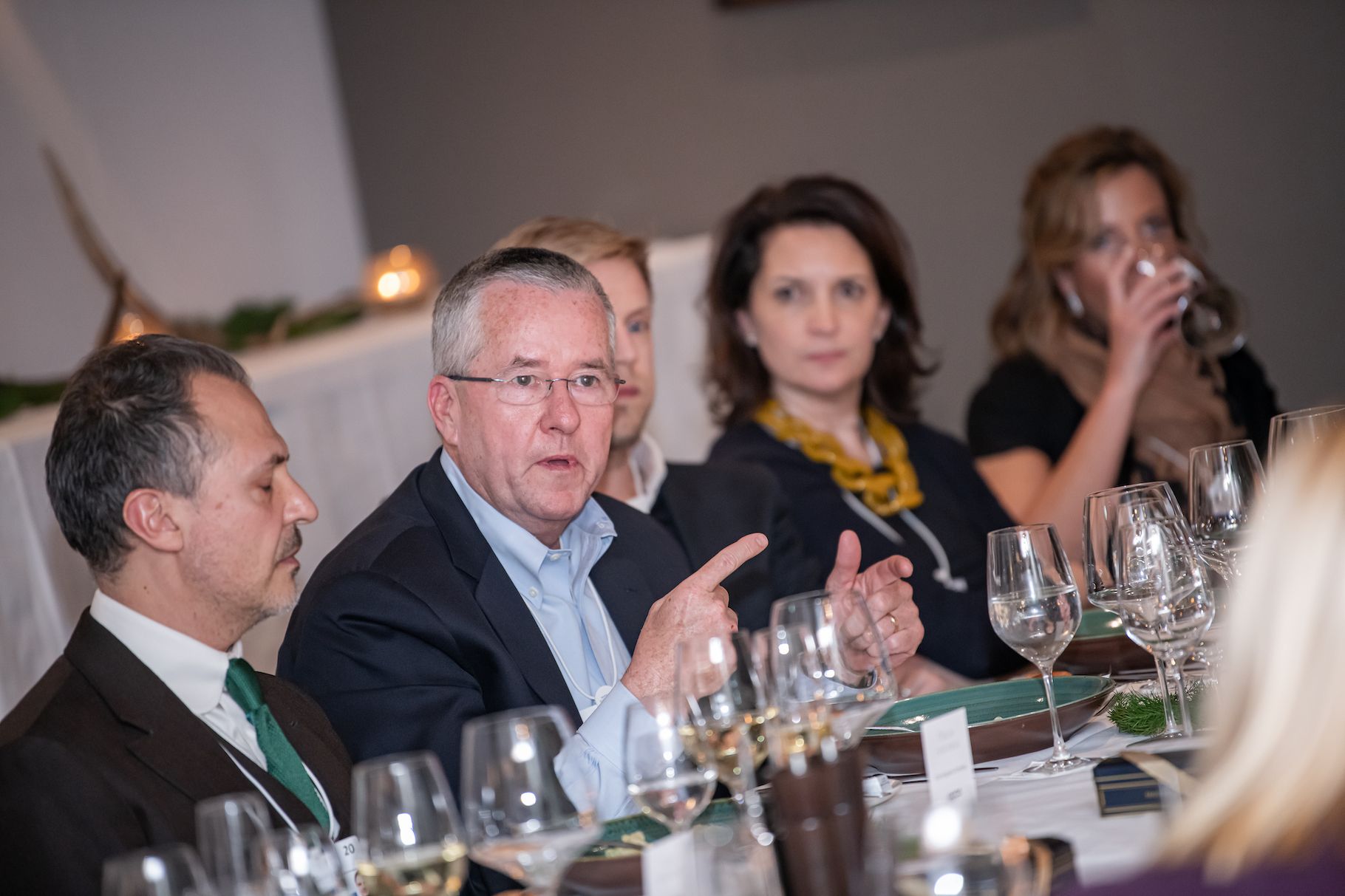Work 2.0: The Evolving Social Contract
Add Axios as your preferred source to
see more of our stories on Google.

Attendees gather at the table for dinner and discussion in Davos. Photo: Dani Ammann for Axios
On Thursday evening, chief technology correspondent Ina Fried hosted an Expert Voices discussion in Davos, Switzerland. The group was tasked with exploring the changing nature of work — everything from employees' evolving expectations of their institutions, stakeholder capitalism, the rise of AI and technological job displacement.
Changing expectations
Fried asked the group about a work expectation that has gone away or changed substantially during their careers.
- Mo Cowan, President of Global Government Affairs and Policy at GE, highlighted the shift from trust and belief in institutions; employees will challenge the institution now. "Our employees have not only found their voice but think up creative ways to amplify that voice."
- Thomas Donilon, Chairman of the BlackRock Investment Institute, shared a changed experience "If you had a job, you thought you can have a decent life. That's not the case for the largest cohort of Americans. When you chose a profession, you had every expectation that it would always exist — that has been upended."
- Yvonne Sonsino, Partner at Mercer, said that retirement is probably a thing of the past, "Now we are looking at how to facilitate a longer, healthier working life."

Other attendees touched on flexibility at work and bringing one's full self to their job.
- Rajesh Mirchandani, Chief Communications Officer at the United Nations Foundation, shared how technology has made his team more flexible — they understand they need to be responsive at any time.
"Another benefit is that we as managers learn that I don't need you in the office every day if you're getting your work done. And we need to do more of that. People have jobs and they have lives and they need to be able to do both."
- Marne Levine, Vice President of Global Partnerships, Business and Corporate Development at Facebook, similarly noted "Work cultures are saying bring your whole self to work and tools are being created to bring out your whole self at work."
- Michael Federle, CEO at Forbes, emphasized that his most effective team members work horizontally across the organization and are aware of the full organization rather than just the vertical they work in. The flattening of organizational hierarchies is allowing the best people to show themselves early on.
Jobs of the future
The discussion then focused on jobs of the future — what these jobs look like, how the workforce gets to that point, and how society is currently doing in providing that pathway after job displacement.

- Martin Whittaker, CEO of JUST Capital, brought up two important points:
- "What is the obligation of the disruptor to the disrupted? What is my obligation to those displaced — do I have any or is that just progress?"
- "There will be a premium on human creativity. We are just scratching the surface of human creativity — AI will unleash a whole new generation full of solutions and ideas."
- Olivia Lopez, Managing Director of Partnerships at The Rockefeller Foundation, highlighted the value of people that do the work that is not valued — teachers, health care and elderly care workers — noting these are the jobs that won't be replaced, the people jobs.
- Brian Gallagher, President and CEO of United Way Worldwide, emphasized the fact that new job systems are inaccessible for many people — people don't know where the starting point is to even become part of the new economy. "We've trained ourselves to act like systems leaders, we need to be people leaders."
Thank you Verizon for sponsoring this event.
